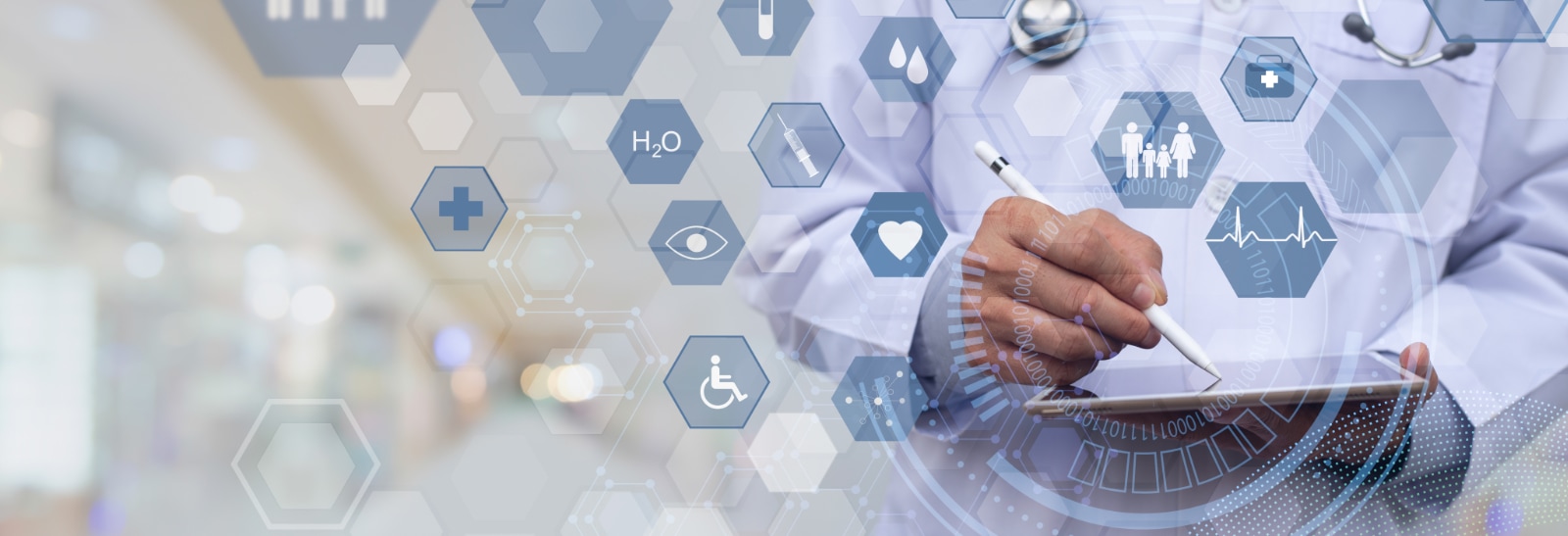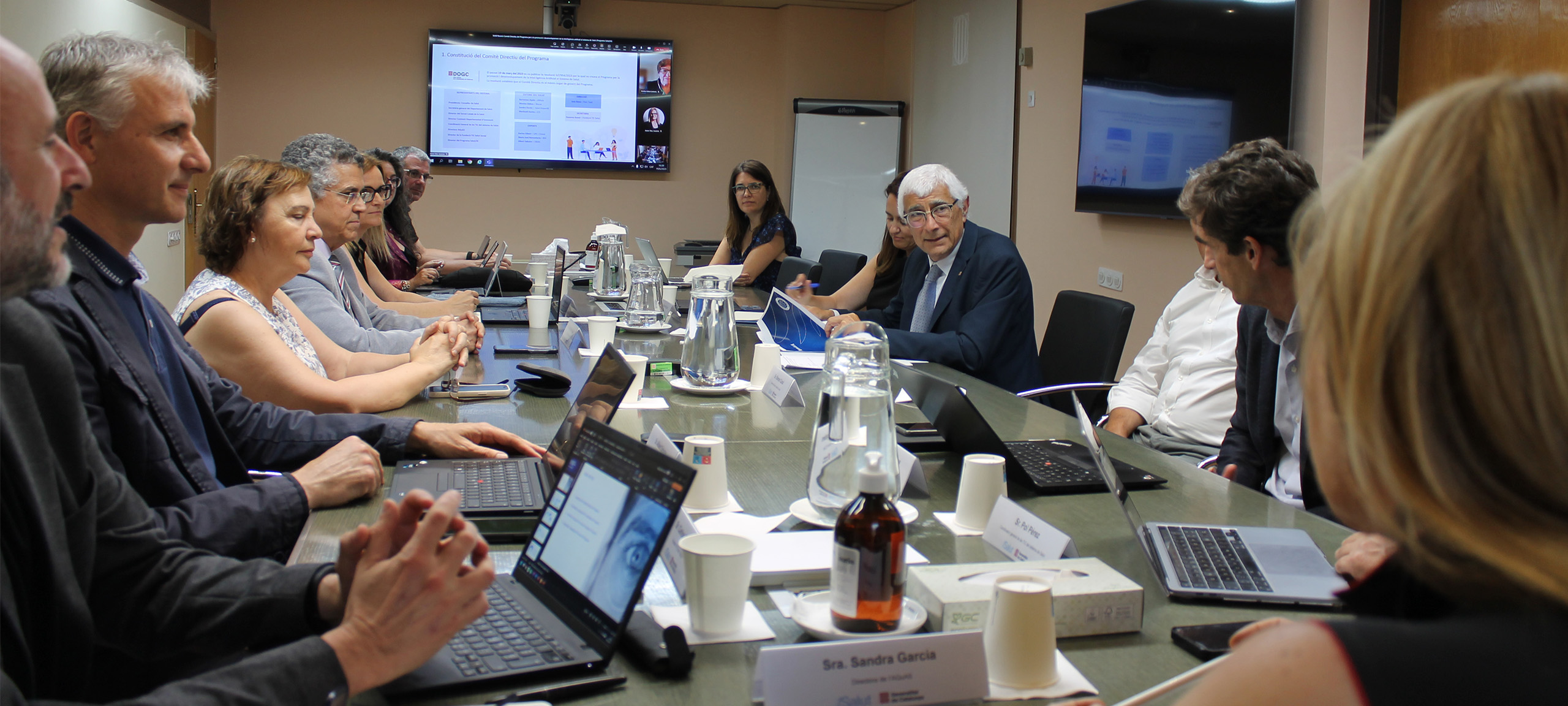The Health/AI Programme starts work on the promotion and development of artificial intelligence in the health system
The first formation and work meeting of the Steering Committee of the Health/AI Programme has been held. It is made up of senior representatives of the health sector in Catalonia, professionals in clinical practice and experts in artificial intelligence
The Minister of Health, Manel Balcells i Díaz, today chaired the first formation and work meeting of the Steering Committee of the Health/AI Programme, made up of health care professionals from the health system, artificial intelligence (AI) experts, and senior officials from the Department of Health, the Catalan Health Service, the Strategic Management of the Departmental Committee for Innovation and Transformation of the Health System, the General Coordination of ICT in the Health System, the Health Quality and Assessment Agency and the TIC Salut Social Foundation.
Mr Balcells stated that “the Health/AI Programme is a strategic commitment to ensure the robustness, ethics, fairness and efficiency of AI solutions for health in Catalonia”. These solutions “must be previously evaluated with the data we have so they comply with the guidelines of the AI law being developed by the European Union”.
The head of the Health Area also stressed that “this innovative programme, which is already underway today, is unprecedented at national level and allows us to have a structured model for how the application of artificial intelligence should be implemented in the health system”, while also stating that “well-applied AI can help us improve patient diagnosis and the efficiency and sustainability of the system”. Lastly, he emphasised that “this programme is one of the projects that will transform the system”, alongside training professionals.
The purpose of the programme is to create an enabling environment for innovation in the field of health through the development and implementation of AI solutions. As explained by the programme’s director, Dr José Ibeas, “through AI we are seeking to improve citizens’ health and the sustainability of the health system, respecting personal rights and ensuring that the solutions we implement are evaluated, safe and reliable”.
Lines of action for the Health/AI Programme
The programme has three different lines of action. On the one hand, with the support of the Recovery, Transformation and Resilience Plan (PRTR) funded by the European Union with NextGenerationEU funds, it will coordinate the launch of public procurement challenges for AI tools that meet needs not covered by the system. These tools must comply with certain standards set by the programme to ensure the fairness, scalability and quality of the solutions.
On the other hand, through the Health AI Observatory, launched at the end of 2022, the programme aims to find out and make widely known how AI is created in the field of health from conceptualisation to implementation, stressing the risks and opportunities presented. The Observatory is also the gateway to all the AI initiatives of organisations in Catalonia’s comprehensive health system for public use (SISCAT).
Finally, it will offer support to the initiatives identified by the Observatory, by producing reference guides for the implementation of AI with full guarantees for citizens and health professionals as a group, as well as a mentoring service. In addition, initiatives selected by the programme or arranged with the Steering Committee may also receive support in areas such as evaluation, implementation and access to funding, among others.
AI experiences in health in Catalonia
The Health AI Observatory has identified more than 100 AI solutions that are being developed or used in SISCAT and research centres in Catalonia and is continuing to actively collect information. Of the initiatives identified, 47% are carried out in a hospital setting, 24% in primary care and 8% in mental health, among others.
The tools are used in 61% of cases in medical and surgical procedures and in 16% of cases in management procedures. By medical speciality, the most-reported AI solutions are in medical oncology, with 20% of cases; followed by general medicine, with 14%; and x-ray diagnosis and family and community medicine, with 12% respectively.
At the event presenting the creation of the Health/AI Programme’s Steering Committee, one of the initiatives registered with the Observatory, which will be supported by the programme, was presented: the skin cancer diagnosis support platform at Hospital Clínic. For more than 5 years, the dermatology team has been working with AI tools to support professionals in diagnosing melanomas and to democratise this technology for prevention and early screening of the disease among the general population. Specifically speaking, they have developed algorithms to classify skin tumours with high-precision digital photography in the laboratory. They are currently working on predictive AI prognosis models for cancer patients.
Dr Josep Malvehy, the coordinator of the Skin Cancer and Innovation Unit at the clinic’s Institute of Medicine and Dermatology, explained how over the years his team has found that “algorithms can be useful in many tasks such as detecting suspicious lesions; however, unlike trained professionals, they can only work on what they have been properly trained for”. As an example, he mentioned that “diagnostic algorithms do not know how to recognise less frequent lesions that may be malignant or benign. They also cannot say ‘I don’t know’, so it is essential for professionals to learn to use AI tools appropriately and know both the limitations and the potential benefits they can provide”.
The next steps for the clinic’s team are the evaluation of AI tools in studies with real patients to be able to validate them before they are included as a diagnostic support tool for health professionals in Catalonia. Regarding this, Dr Malvehy said that “the Health/AI Programme’s support is essential to have quality data when training and validating the algorithms”.
Members of the Steering Committee:
- Manel Balcells Díaz, Catalan Minister of Health
- Mercé Salvat Guinart, general secretary
- Ramon Canal Comaposada, director of the Catalan Health Service (CatSalut)
- Ramon Maspons Bosch, director of the Departmental Committee for Innovation and Transformation of the Health System
- Pol Pérez Sust, general coordinator of Health System ICT
- Sandra García, director of AQuAS
- Joan Guanyabens, director of the Tic Salut Social Foundation
- José Antonio Ibeas, director of the Health/AI Programme
- Susanna Aussó, secretary of the Health/AI Programme
People from the SISCAT environment
- Bartomeu Ayala, UCH-Althaia
- Sandra Duran Bonillo, Empordà Health Foundation
- Meritxell Davins, Catalan Health Institute (ICS)
- Montse Daban Marín, BIOCAT
Experts
- Albert Sabater Coll OEIAC, UdG
- Karina Gibert Oliveras UPC, CIVICAI
- María José Rementeria, BSComputing
More news
-
26 JANUARY 2024

SISCAT and research center managers delve into the field of artificial intelligence in health
About sixty managers and senior representatives from the centers of the Catalan public healthcare ...
26 JANUARY 2024 -
20 OCTOBER 2023

The results of the preliminary market consultation for the medicine information challenge have been published
The Health Quality and Assessment Agency of Catalonia (AQuAS) has published the Final report ...
20 OCTOBER 2023 -
19 JULY 2023

The Department of Health begins the market consultation process for the development of AI-based solutions to provide information on medicines to the public
Within the framework of the Health/AI programme, the conditions of the market consultation concerning ...
19 JULY 2023



